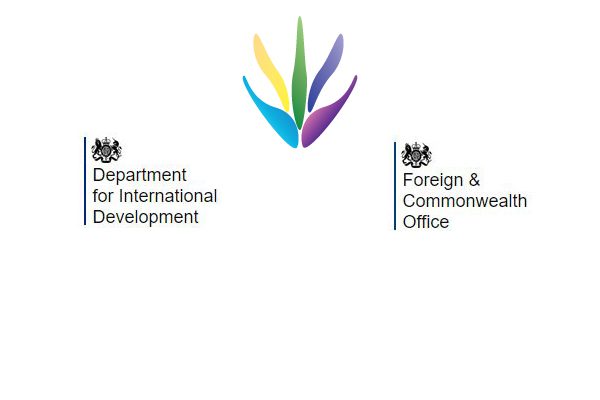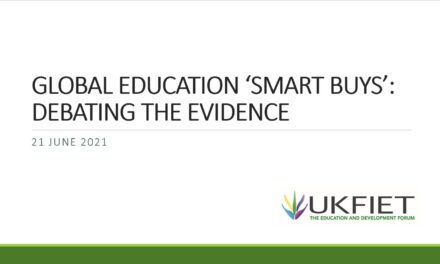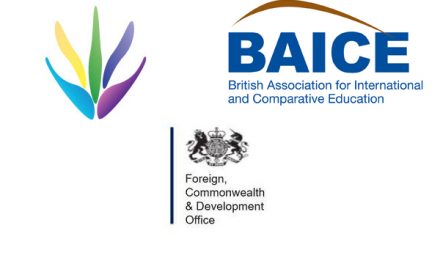To:
The Rt Hon Dominic Raab MP, Foreign Secretary
The Rt Hon Anne-Marie Trevelyan MP, Secretary of State for International Development
Baroness Sugg CBE, Parliamentary Under Secretary of State and Prime Minister’s Special Envoy
for Girls’ EducationDear Foreign Secretary, Secretary of State, MinisterWe are writing in response to the announcement of the departmental reorganisation that will create the Foreign, Commonwealth and Development Office. Our Trustees believe that maintaining existing levels of investment in international development serves Britain’s political and economic strategic interests. It reaffirms the outstanding commitment of the UK to poverty reduction in low income countries, contributes to growth in developing country markets, and reduces the chances of endemic conflicts and irreversible depletion of the earth’s resources. We see the new department as an opportunity to build on DFID’s impressive achievements, develop innovatory programmes to extend access to learning, and enhance the impact of UK aid to education.The Education and Development Forum (www.ukfiet.org) is a long established not-for-profit membership organisation which brings together more than 30 UK based universities, NGOs, technical assistance providers and development partners focused on education and development. The Forum supports a global community of practice and collates evidence on pedagogy and learning, undertakes research to improve education systems, and develops UK based capacity to accelerate development. UKFIET members have contributed extensively to the delivery of DFID programmes and to UK policy on aid to education. They have participated in major bi-lateral and multi-lateral meetings as high-level advisors to development partners and have organised many research projects in collaboration with universities, national governments, development NGOs and private sector partners.We wish to emphasise four priorities for consideration during the reorganisation.i) MAINTAIN THE FOCUS OF AID ON LOW-INCOME COUNTRIES (LICS): investing in low-income countries means investing both in their economic development and in poverty reduction. It is in Britain’s long-term strategic interest to promote the development of our future trading partners, consolidate our national security, and honour our humanitarian commitments. The largest gains and the greatest impact of aid arise when grants are directed to the poorest countries least able to afford to service loans and collect revenue.
ii) PROTECT LEVELS OF INVESTMENT IN AID TO EDUCATION: education is at the core of development and human wellbeing. The UK has been in the forefront of global initiatives for education, most recently in commitments to SDG4. It has led the world in providing financing and technical assistance to strengthen delivery in systems, improve educational assessment, construct data systems, and raise the level of learning outcomes in LICs, especially for girls. We endorse the current commitment to investment in the education of girls as this is key to the empowerment of women and to improvements in their health and welfare and that of their children. This will contribute directly to recovery from the effects of COVID-19. Carefully targeted assistance to education will be needed to ensure spending on health, infrastructure, and the economy has impact. Aid to education should be maintained at 10% of total aid expenditure.
iii) INVEST IN EDUCATIONAL RESEARCH: timely research remains central to the innovation and the evidence base for improved practice that can lead to enhanced learning and greater system effectiveness and efficiency. This is essential to develop sustainable education systems. The UK Higher Education sector has world class research institutions and deep links to education systems in LICs. The UK is a key destination for international post-graduate students who will become the decision makers of tomorrow. It is also a global provider of educational services. Research on education is essential to maintain global leadership in educational innovation and to provide evidence to understand impact and inform aid policy. It should account for at least 5% of the educational aid spend.
iv) REMAIN COMMITTED TO AID EFFECTIVENESS PRINCIPLES: through DFID the UK has led on aid effectiveness, transparency, inter-agency coordination, and the development of methods to enhance impact and ensure value for money. It is held in high regard by other development agencies and recipient countries. It has used its convening power to leverage better practice. The highly respected International Development Committee and the Independent Commission on Aid Impact (ICAI) should be retained. So also should membership of the Development Assistance Committee of the OECD. The FCDO should maintain an enhanced cadre of education advisors commensurate with the magnitude of activity and need in LICs
The Forum is committed to developing its working relationships with the FCDO and looks forward to the contributions its members can make, including through the ongoing Integrated Review.
We welcome a discussion of the issues the UKFIET Trustees have identified with relevant parties in the new Office at your convenience.
We look forward to hearing from you
Yours sincerely,
Professor Keith Lewin Dr Caine Rolleston
Chair of the Board of Trustees, UKFIET Executive Chair, UKFIET
|






